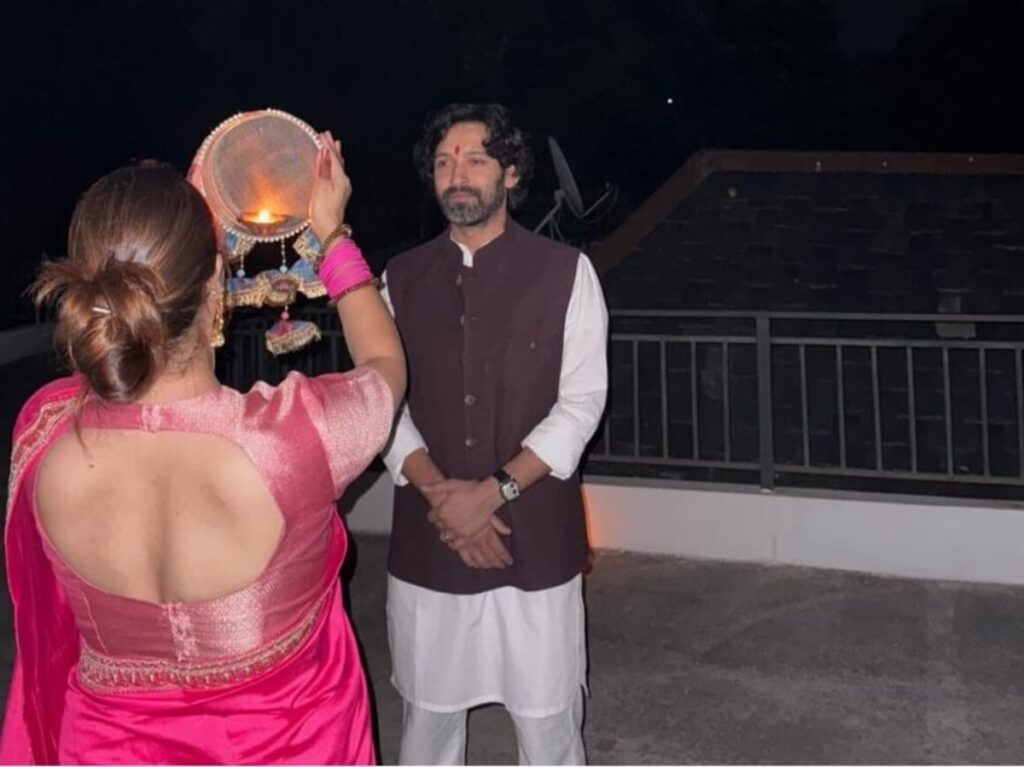In contemporary society, traditional customs often evolve to reflect modern values and mutual respect among partners. A recent incident involving actor Vikrant Massey and his wife Sheetal Thakur during Karva Chauth has sparked positive discussions around these changing dynamics. Their gesture of mutual reverence has resonated with many, highlighting the importance of equality and understanding in marital relationships.
Understanding Karva Chauth
Karva Chauth is an age-old Hindu festival celebrated by married women in India. It involves fasting from sunrise to moonrise for the well-being and longevity of their husbands. Traditionally, this observance has been steeped in cultural significance, symbolizing devotion and sacrifice. However, modern interpretations emphasize partnership and shared responsibilities.
The Significance of Vikrant Massey and Sheetal Thakur’s Gesture
During this year’s Karva Chauth, Vikrant Massey and Sheetal Thakur broke conventional norms by both touching each other’s feet, a gesture that signifies respect and equality. This act is significant as it challenges traditional gender roles, advocating for a more balanced approach to relationships.
Breaking Stereotypes: A Shift in Perspective
As society progresses, more couples are adopting practices that promote equality. Vikrant and Sheetal’s example encourages a conversation about gender roles in rituals that have traditionally placed the responsibility solely on women.
| Traditional Roles | Modern Interpretation |
|---|---|
| Women Fast for Husbands | Couples Support Each Other’s Fasts |
| Women Perform Rituals Alone | Joint Participation in Rituals |
| Foot Touching by Women as a Sign of Respect | Mutual Foot Touching to Symbolize Equality |
The Impact of Such Gestures in Society
The act of mutual respect exhibited by Vikrant and Sheetal carries the potential to influence many couples. It emphasizes the importance of equality in marriage, encouraging both partners to engage actively in customs that previously emphasized one-sided responsibilities. This shift can lead to a more harmonious and respectful marital dynamic, ultimately benefiting the couple’s relationship and setting a healthy example for future generations.
Conclusion
Vikrant Massey and Sheetal Thakur’s actions during Karva Chauth serve as a compelling reminder of the changing landscape of relationships today. As societal norms continue to evolve, it is essential to embrace practices that foster equality and respect, creating a balanced partnership that honors both individuals. Their gesture, while rooted in tradition, paves the way for a more inclusive understanding of love and commitment in modern marriages.
